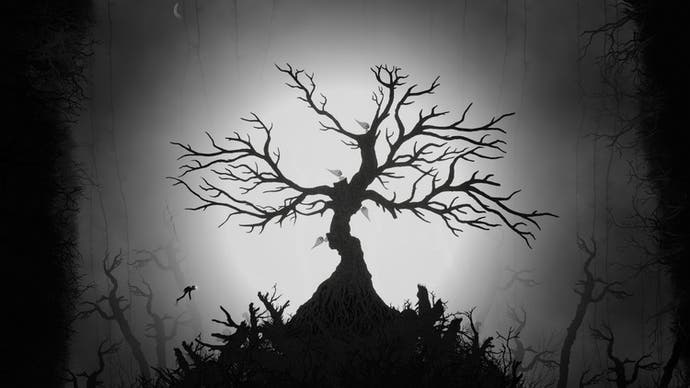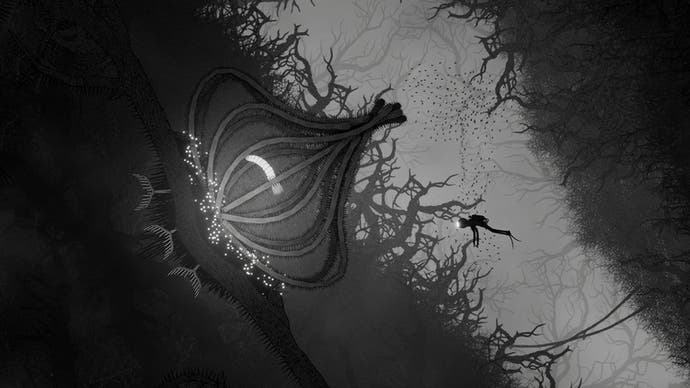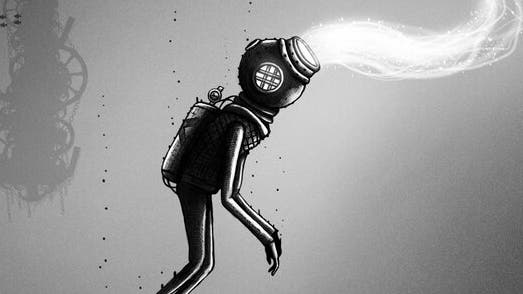Silt offers underwater horrors worthy of Searle and Scarfe
Big fish, little fish, swimming in the water.
Silt is one of those great Robert MacFarlane words. I want to lift it to my ear in a quiet room and close my eyes, so I can hear those sands shifting, tiny rocks brushing one against another. There's beauty to it - deep time and nature's endless grinding patience. But there's horror in that very patience: this world will take a billion gentle years to bury you completely.
Silt seems aware of this - the horror and beauty of certain words, the poetry of them. This is an adventure that starts with a poem - in short, there are beasts out there under the waves and you need to collect their eyes - but the second time I played through, I wondered: poem or incantation? Is there a difference? Just what is being summoned here?
You are a lithe diver with the classic brass helmet. Flippers slightly too long, body slightly too slim. I suspect what is under all that brass is not entirely human. And I'm quickly proved right. As you move about the two-dimensional world, deep under the ocean, the murk rendered in sooty, throbbing Buñuel greys and blacks, you can send out a sizzling beam of lightning, threading it through the bubbles, to possess any nearby creatures. Little fish might get through gaps. Bigger fish might be able to bite through reeds blocking your path. Sharky things might ram blocks and smash them.
Chaining these possessions together seems to be a lot of the fun here - seeing how far you can move from your little diver and then somehow oxbow back to them bearing a bit of progress. But like Limbo, a game to which Silt invites very superficial comparisons, this is a puzzle game that never feels like a puzzle game. Under water, so far from the surface, it feels like life and death. You have, as a Wall Street type might put it, a serious position in the market.
I played a demo of Silt this morning - it's out now on Steam - and marveled at its oppressive wonders. It's a short demo - I would have played for much longer. It ends with a beast, and I did, reader, collect their eyes in the end. But I also took in the detailing: cogs and machinery down in the darkness, blending with the reeds and stone - a world that is perhaps part Antikythera Mechanism, itching to give up its clockwork secrets. Scale plays a big part in the fun - the camera moves in close and I tower over the fish around me, but then it pulls out as I swim and I watch myself emerge from a cave that is frosted with sharp teeth - all of this time I have been in the belly of a bigger fish.


Brilliantly, these horrors are not delivered with any kind of clear-eyed realism. How could they be? They have the frantic penstrikes and ink blots of Searle or even Scarfe's work. Something comedic in the horror - but just the slightest splinter of comedy. A smiler with a knife.
Deep down, once the demo's beast had been defeated, I found something truly wondrous waiting in a cavern beneath it. I wish I could tell you about it, but you'll be glad, I think, that I did not. Silt is going to be a horrible delight. Wait for it. Because it seems to be waiting for you.


